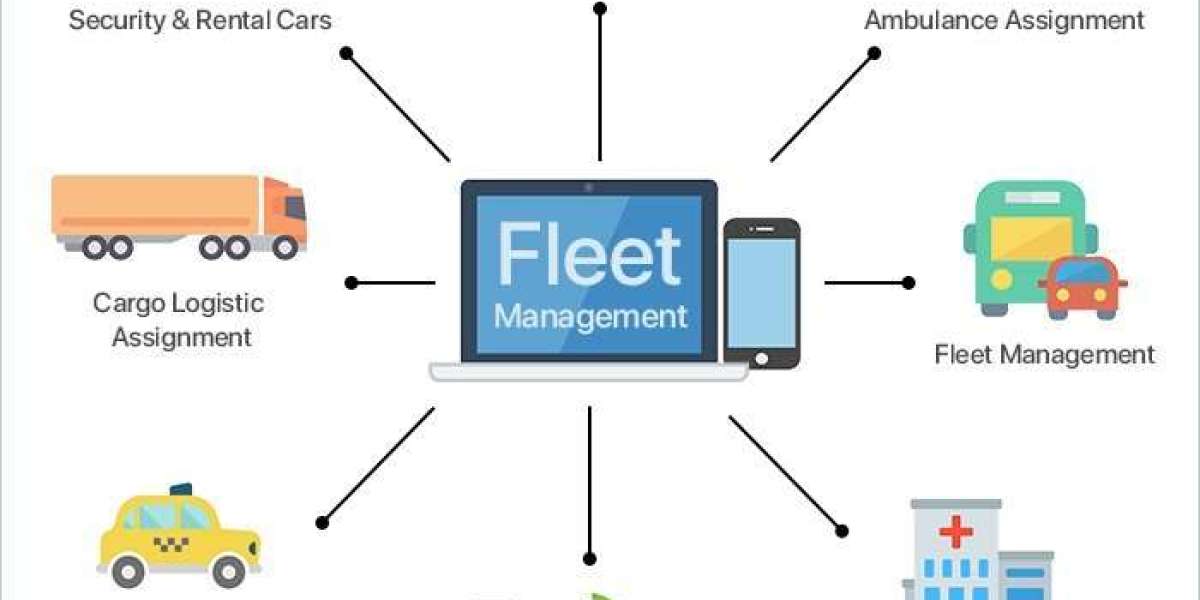In the fast-paced world of transportation and logistics, efficiency is everything. Whether it's delivering packages across cities or managing a fleet of trucks for nationwide distribution, companies are constantly looking for smarter ways to streamline operations, reduce costs, and improve safety. Enter Fleet Management Platforms—the digital backbone that’s transforming how businesses operate their vehicle fleets.
What Is a Fleet Management Platform?
A Fleet Management Platform (FMP) is a comprehensive software solution designed to help businesses manage, track, and maintain their fleet of vehicles. These platforms provide real-time insights and tools that enhance decision-making around vehicle maintenance, route optimization, fuel usage, driver behavior, compliance, and more.
Key Features of Modern Fleet Management Platforms
GPS Tracking and Real-Time Monitoring
One of the most critical functions is live tracking of vehicle locations. This allows dispatchers to monitor fleet movements, provide customers with accurate ETAs, and respond quickly to unexpected events.Route Optimization
FMPs analyze traffic, delivery windows, and other data to suggest the most efficient routes. This helps reduce fuel costs and improves delivery timelines.Driver Behavior Monitoring
By tracking metrics such as harsh braking, speeding, and idling time, platforms can help identify risky behavior and provide feedback or training to drivers.Vehicle Maintenance Alerts
Preventative maintenance is easier when systems automatically alert managers to service schedules, engine diagnostics, or potential mechanical issues.Fuel Management
Platforms can monitor fuel consumption patterns, detect anomalies, and help reduce unnecessary fuel expenses.Regulatory Compliance
FMPs can ensure that drivers and vehicles comply with industry regulations, such as hours-of-service rules, inspections, and licensing.Data Analytics & Reporting
Custom dashboards and reports give fleet managers insights into performance metrics, cost analysis, and operational trends.
Benefits of Using a Fleet Management Platform
Cost Reduction: Improved route planning, reduced fuel usage, and proactive maintenance cut down operational expenses.
Improved Safety: Monitoring driver behavior and vehicle health can help prevent accidents and ensure compliance with safety standards.
Higher Productivity: Automation of manual tasks and improved scheduling increase the productivity of both drivers and vehicles.
Better Customer Service: Real-time tracking enables accurate delivery updates and better communication with customers.
Environmental Impact: Optimized driving and reduced idling contribute to lower emissions and a smaller carbon footprint.
Who Uses Fleet Management Platforms?
Fleet management platforms are used across a wide range of industries, including:
Logistics and Delivery Companies
Public Transportation Providers
Construction and Heavy Equipment Firms
Utility Companies
Government and Municipal Fleets
Rental and Leasing Agencies
Future Trends in Fleet Management Technology
As technology evolves, so do the capabilities of FMPs. Key future developments include:
AI and Predictive Analytics: Helping managers anticipate issues before they arise.
Integration with Electric Vehicles (EVs): Managing charging schedules, battery health, and EV-specific routes.
Autonomous Vehicle Support: Platforms are adapting to monitor and manage semi-autonomous and autonomous vehicles.
IoT and Telematics Expansion: Even more detailed data from vehicles and assets, leading to richer analytics.
Choosing the Right Fleet Management Platform
When selecting a platform, companies should consider:
Scalability: Can it grow with your fleet?
Ease of Integration: Will it work with your existing systems (e.g., CRM, ERP)?
User Interface: Is it intuitive for both drivers and managers?
Customer Support: Is help available when you need it?
Customization Options: Can it be tailored to your industry or workflow?
Conclusion
Fleet Management Platforms have become essential tools in modern transportation and logistics. By offering real-time visibility, smarter analytics, and improved operational control, they empower businesses to be more agile, efficient, and customer-focused. As fleet sizes grow and logistics demands increase, adopting a powerful FMP isn’t just a smart choice—it’s a competitive necessity.
Would you like this adapted into a more cas








